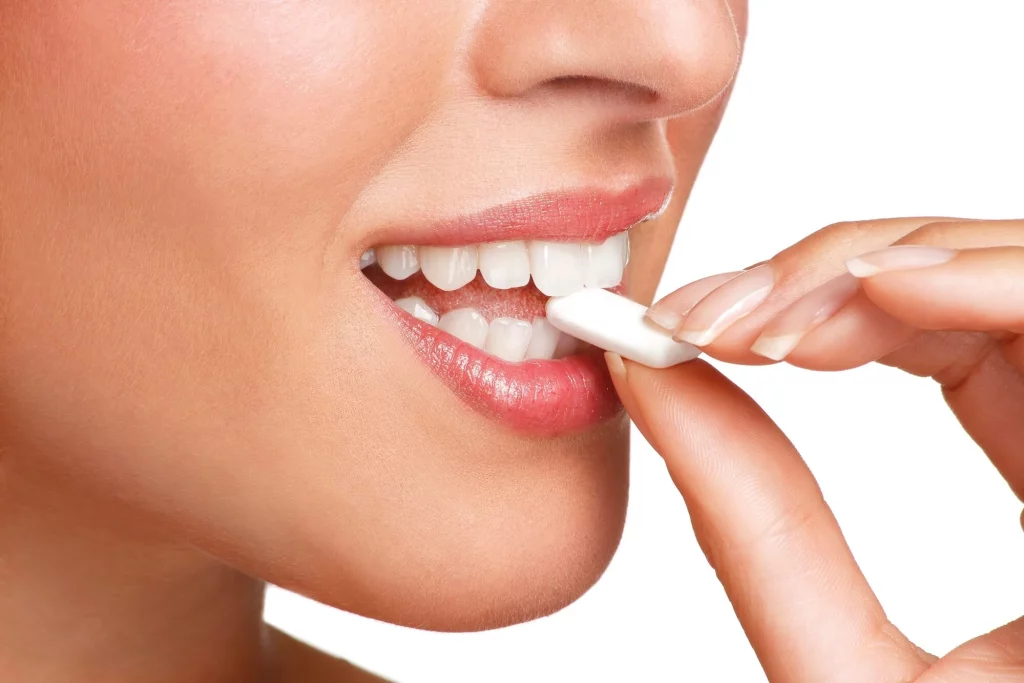Having fresh breath is not only important for making a good first impression but is also an essential aspect of maintaining good oral health. Bad breath, also known as halitosis, can be an embarrassing issue, but it’s more common than you might think. The good news is that, in most cases, bad breath can be managed and even eliminated by adopting simple, natural practices. In this article, we’ll explore the common causes of bad breath, natural solutions to combat it, and tips for maintaining fresh breath without relying on chemical-laden products like mouthwash.
Understanding the Causes of Bad Breath
Before diving into the natural remedies for freshening your breath, it’s essential to understand what causes bad breath in the first place. Bad breath can be caused by a variety of factors, from dietary habits to oral hygiene practices. By addressing the root causes, you can significantly reduce or eliminate bad breath.
1. Dietary Habits
The foods you eat play a significant role in the freshness of your breath. Certain foods, like garlic, onions, coffee, and alcohol, can contribute to bad breath due to their strong odors. When you eat these foods, the odor-causing compounds enter your bloodstream and are eventually exhaled from your lungs, causing your breath to smell unpleasant. Sugary foods can also contribute to bad breath by promoting the growth of bacteria in your mouth.
2. Dry Mouth
Saliva is essential for maintaining fresh breath because it helps wash away food particles and bacteria from your mouth. When you don’t produce enough saliva, food particles and bacteria can accumulate in your mouth, leading to bad breath. Dry mouth can be caused by various factors, such as dehydration, medications, or certain medical conditions.
3. Bacteria Build-up
One of the most common causes of bad breath is the accumulation of bacteria in the mouth. Bacteria thrive in warm, moist environments like your mouth, especially if you don’t practice good oral hygiene. These bacteria produce sulfur compounds, which are responsible for the foul odor associated with bad breath. Bacteria can grow on the tongue, between the teeth, and along the gum line.
4. Poor Oral Hygiene
Inadequate brushing and flossing can lead to the build-up of food particles and plaque, which harbor bacteria and contribute to bad breath. When plaque is not removed through proper brushing and flossing, it hardens into tartar, leading to gum disease and further contributing to bad breath. Regular oral hygiene is essential to combat this issue.
5. Underlying Medical Conditions
In some cases, bad breath may be a sign of an underlying health issue. Conditions such as gum disease, diabetes, acid reflux, or respiratory infections can all contribute to persistent bad breath. If you’ve addressed dietary and hygiene factors and still experience bad breath, it may be worth consulting a healthcare provider to rule out any medical conditions.
Natural Solutions for Fresh Breath
Now that we understand the causes of bad breath, let’s explore some natural remedies to combat it. These solutions are chemical-free and safe, offering long-term benefits for your oral health.
1. Drink Plenty of Water
One of the easiest and most effective ways to combat bad breath is to stay hydrated. Drinking water helps keep your mouth moist, ensuring that saliva is produced in adequate amounts. Saliva acts as a natural cleanser for your mouth, washing away food particles and bacteria. Additionally, water helps flush out odors from your mouth and digestive system.
Make it a habit to drink water throughout the day, especially after eating, to help keep your breath fresh. You can also rinse your mouth with water after meals to help remove any food particles stuck between your teeth.
2. Chew Sugar-Free Gum or Mints
Chewing gum or sucking on sugar-free mints can help freshen your breath temporarily by stimulating saliva production. This is especially useful if you’re on the go and need a quick fix. Look for gum or mints that contain xylitol, a natural sugar substitute that helps inhibit the growth of bacteria in your mouth.
While gum and mints are not a long-term solution, they can help mask bad breath and provide immediate relief, especially when you can’t brush your teeth right away.
3. Use Herbs to Freshen Your Breath
Certain herbs have natural antimicrobial properties that can help kill the bacteria responsible for bad breath. Some herbs have been used for centuries to freshen breath and promote oral health. These herbs include:
- Parsley: Parsley is rich in chlorophyll, which is thought to neutralize bad odors. Chewing a few sprigs of fresh parsley after meals can help freshen your breath.
- Mint: Mint contains menthol, a compound known for its ability to mask bad breath and leave your mouth feeling refreshed. You can chew fresh mint leaves or use peppermint essential oil in a mouth rinse.
- Cinnamon: Cinnamon has natural antibacterial properties that can help kill bacteria in your mouth. You can chew cinnamon sticks or add cinnamon to your tea for a refreshing breath.
4. Brush and Floss Regularly
Brushing and flossing are the most effective ways to maintain fresh breath. Brushing your teeth at least twice a day removes food particles and plaque, preventing the build-up of bacteria that cause bad breath. Be sure to brush for two minutes, using a fluoride toothpaste to clean all surfaces of your teeth, including the back of your tongue, where bacteria can accumulate.
Flossing daily is also essential for removing food particles and plaque from between your teeth. Many areas in your mouth, especially between the teeth, are difficult to reach with a toothbrush. Flossing helps remove bacteria and debris from these areas, reducing the likelihood of bad breath.

5. Scrape Your Tongue
The surface of your tongue can be a breeding ground for bacteria, which can contribute to bad breath. Tongue scraping is an easy and effective way to remove bacteria and food particles from your tongue. You can use a tongue scraper, which is available at most drugstores, or a toothbrush to gently scrape your tongue from back to front.
Regularly scraping your tongue can help reduce the amount of bacteria in your mouth and improve the freshness of your breath.
6. Eat Crunchy Fruits and Vegetables
Crunchy fruits and vegetables, such as apples, carrots, and celery, are natural teeth cleaners. They help stimulate saliva production and physically remove food particles and plaque from your teeth. Additionally, these foods are low in sugar and high in fiber, making them great options for maintaining oral health and fresh breath.
Incorporating more crunchy fruits and vegetables into your diet is a simple way to improve your overall dental hygiene and reduce bad breath.
7. Avoid Smoking and Tobacco Products
Smoking and using tobacco products are major contributors to bad breath. These products not only leave a lingering odor but also dry out your mouth, which reduces saliva production and promotes bacterial growth. Quitting smoking and avoiding tobacco products can significantly improve your breath and overall oral health.
8. Consume Probiotics
Probiotics are beneficial bacteria that can help balance the natural bacteria in your mouth and digestive system. Consuming probiotic-rich foods like yogurt, kefir, and fermented vegetables can help support your oral health and improve your breath. Probiotics work by reducing the number of harmful bacteria in your mouth, helping to prevent bad breath caused by bacterial overgrowth.
Recommended Oral Hygiene Practices for Fresh Breath
To maintain fresh breath all day long, it’s important to incorporate the following oral hygiene practices into your daily routine:
- Brush your teeth twice a day: Brushing in the morning and before bed helps remove food particles and plaque, reducing bacteria in your mouth.
- Floss daily: Flossing removes food particles and plaque from between your teeth, areas that a toothbrush can’t reach.
- Use a tongue scraper: Scraping your tongue helps remove bacteria and food particles, improving the freshness of your breath.
- Drink water regularly: Staying hydrated helps promote saliva production, which helps cleanse your mouth and wash away bacteria.
- Chew sugar-free gum: Chewing gum stimulates saliva flow, which helps neutralize bad breath.
- Visit your dentist regularly: Regular dental check-ups can help identify any underlying issues, such as gum disease or cavities, that may be contributing to bad breath.
Conclusion
Maintaining fresh breath is essential for good oral health and confidence. By understanding the common causes of bad breath and adopting natural solutions, you can keep your mouth feeling fresh without relying on chemicals. Drinking water, chewing sugar-free gum, eating herbs, and practicing good oral hygiene are all effective ways to combat bad breath naturally. Additionally, avoiding smoking, staying hydrated, and consuming probiotic-rich foods can contribute to long-term freshness. Remember that consistent care is key to keeping your breath fresh all day long.













































Discussion about this post